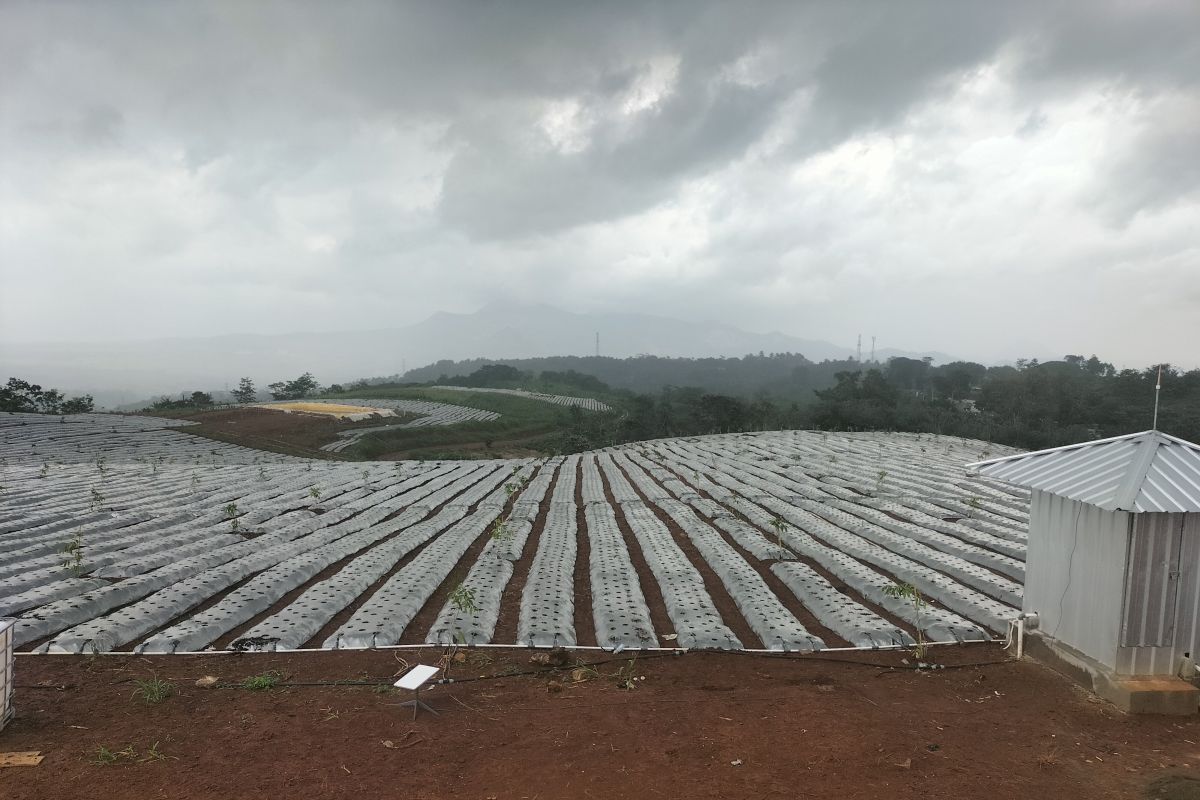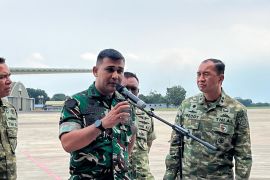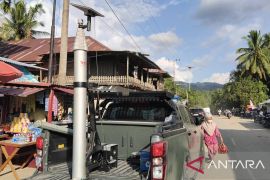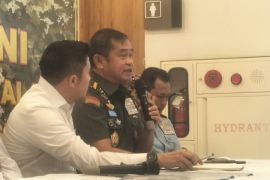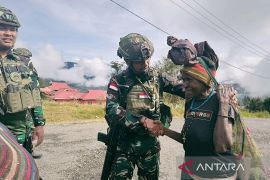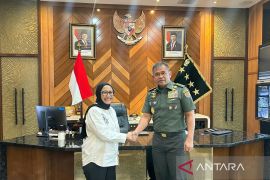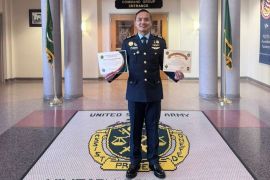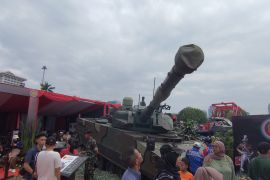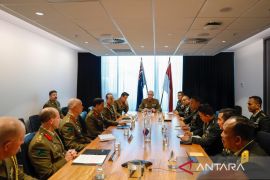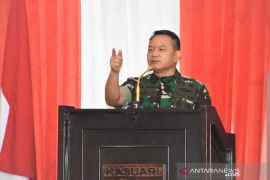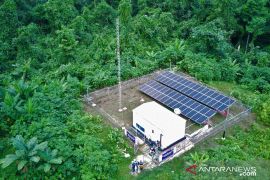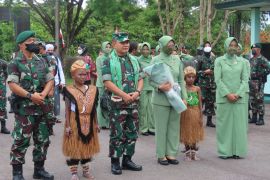The President emphasized the need to make better use of idle lands, turning them into thriving plantations, farms, or other productive areas.
The task fits the Indonesian Army (TNI-AD) perfectly, given its large personnel base, which can be deployed even in the most remote areas. Plus, plenty of soldiers wield the very skills needed to grow crops.
It is worth mentioning that General Simanjuntak and his team were already working on restoring productivity in idle plots of land even before the President issued the directive.
Speaking to the media after the meeting, Simanjuntak said that the army has been collaborating with various parties, including state plantation company PT Perkebunan Nasional (PTPN) and the Ministry of Forestry, to ensure that land utilization complies with existing regulations.
He is fully aware of the critical role water plays in the well-being of land. For his outstanding work in creating water sources across Indonesia, the army commander has earned the title of “General of Water.”
After stepping up to lead the Udayana Regional Military Command in 2020, the general has poured his devotion and skills into the creation of around 3,600 water sources.
These sources can support the President’s food security push, considering their capacity to irrigate over 46 thousand hectares of agricultural area across regions.
In early February this year, ANTARA got the opportunity to take a direct peek at one of the areas transformed by the TNI-AD into a vegetable and fruit powerhouse.
The land is located in Gununghejo village, Purwakarta district, West Java province, just two kilometers away from the office of the 1903 Darangdan Military District Command (Koramil).
After traversing a muddy path recently drenched by rain, ANTARA finally reached the food security area located at the top of a hill with a stunning view of the valley and town in the distance.
The area houses neatly arranged plots of land covered with white plastic sheets. Farmers and soldiers plant seeds through 2-centimeter holes in the plastic.
The agricultural land, covering a total of 200 hectares, is stacked like a staircase across the upper, middle, and lower parts of the hilly area.
First Lieutenant Unang Sunaria, Commander of the 1903 Darangdan Koramil, said that the area, which was previously managed by PTPN, became idle in 2018.
In December 2024, the TNI-AD stepped in to bring life back to the agricultural area.
For this mission, the army has been collaborating with 302 local farmers and offering them valuable lessons on effective cultivation techniques.
Formerly a rubber plantation, the function of the area has now been switched to enable the production of a variety of vegetables and fruits, supported by eight 12 meter x 15 meter retention ponds.
The 4-meter-deep ponds have been designed to store water and channel it to the entire agricultural area where farmers and soldiers grow assorted crops, including avocados, longans, mangoes, durians, mangosteens, sapodillas, cherries, chilies, tomatoes, shallots, and petai, or stink beans.
First Lieutenant Sunaria said that the area is expected to yield one vegetable harvest in a year, while fruits can be harvested two to three times annually.
Recognizing the importance of empowering people, Maruli “Water General” Simanjuntak has directed the TNI-AD to involve farmers in food security efforts and ensure they play a role in their own progress.
For the effort, the army has teamed up with Elevarm, an agriculture consultancy, to help farmers make the most of the food security area ANTARA visited.
Elevarm's president director, Bayu Syerli, said that besides training farmers, his company is also providing the right pesticides, fertilizers, and seeds for the region.
The goal is to produce high-quality, competitive crops that can be marketed both nationally and internationally.
After harvests, farmers will likely need more hands to manage, pack, and distribute their produce, ultimately creating more jobs for local residents.
Syerli further said that Elevarm’s role goes beyond cultivation processes as the company is committed to guiding the farmers in acquiring capital and selling food commodities at favorable prices.
On top of that, the commodities are expected to support the Free Nutritious Meals program prioritized by President Prabowo, he added.
Chairperson of a local farmers' group, Asep Da’i, acknowledged the army’s role in improving the farming techniques of local residents.
“General Maruli has stepped in to provide us with clear and reliable guidelines on how to properly manage our farms, the type of support we have been expecting for years,” he informed.
According to Da’i, the locals used to employ ineffective and obsolete farming techniques, which kept them from growing and harvesting crops of high quality and quantity.
Thanks to the army’s intervention, he said, local farmers can now apply effective cultivation techniques, choose quality seeds, market their produce, and obtain business capital.
He expressed the hope that the government will continue to guide him and fellow farmers in optimizing idle lands across Indonesia so that they can contribute to the realization of President Prabowo’s dream of restoring food self-sufficiency in the country.
Related news: President Prabowo asks army to focus on food security
Related news: Ministries team up to end poverty through food security
Related news: Empowering farmers, modernizing agriculture for food security
Translator: Walda M, Tegar Nurfitra
Editor: Primayanti
Copyright © ANTARA 2025
